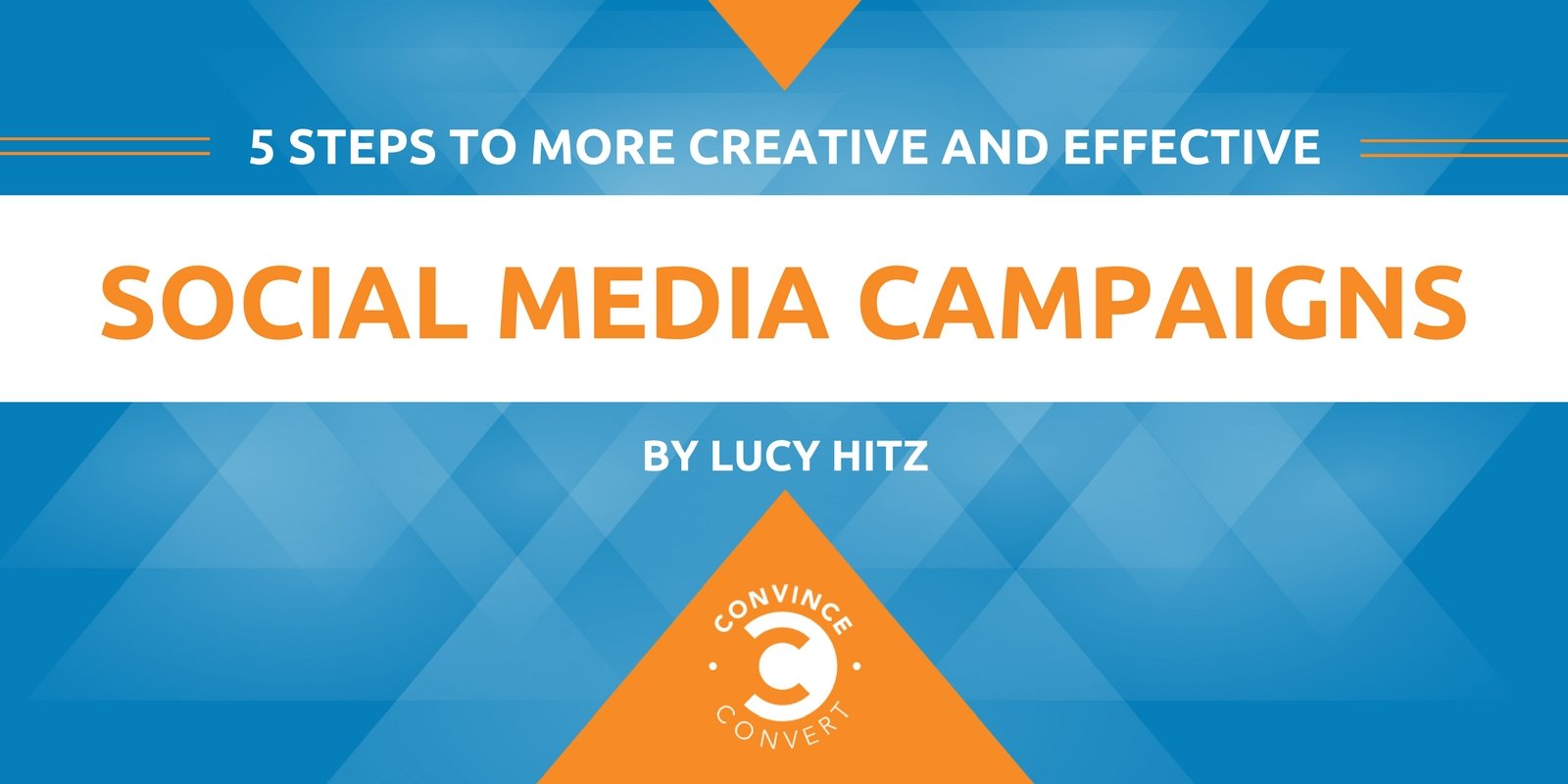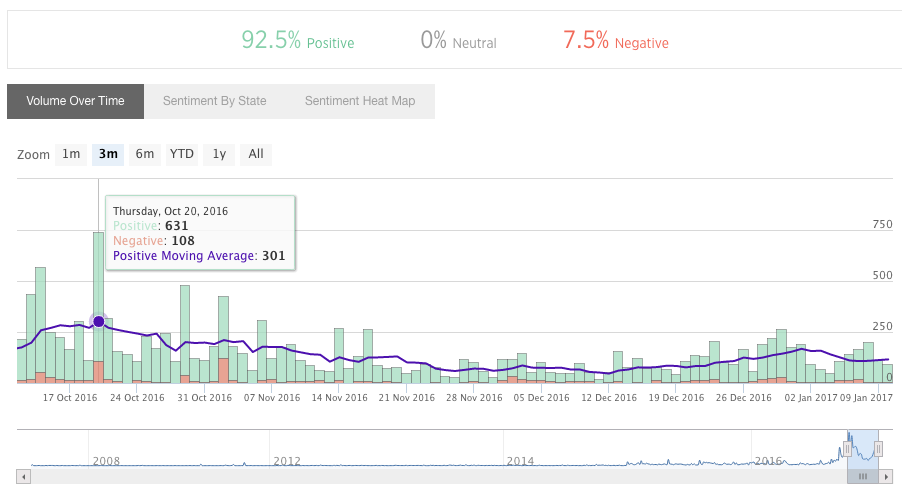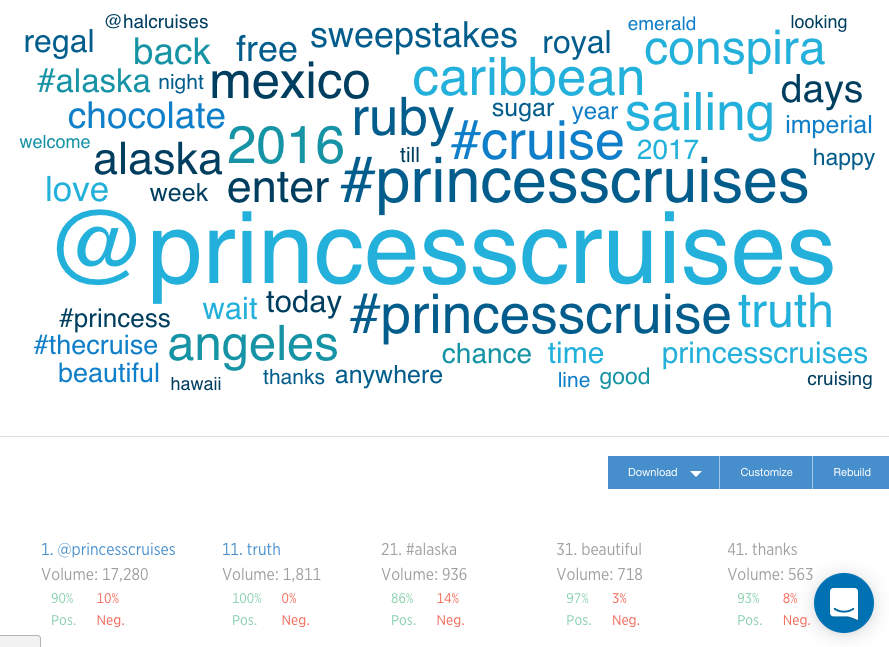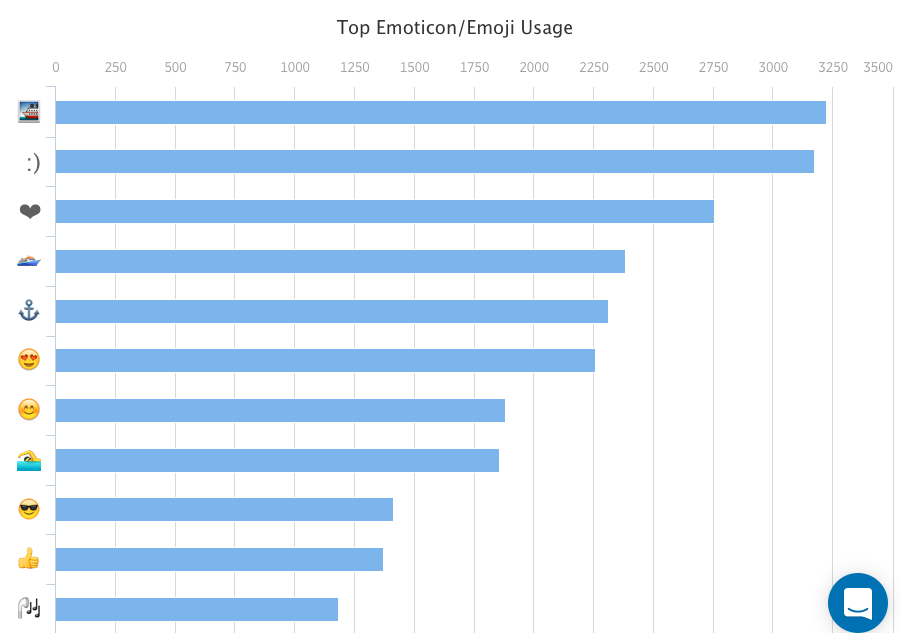
Are you experiencing a creative drought? Or are you bursting with creative ideas for your social media campaigns, but stumped about ways to validate these ideas? Here are five ways you can come up with more creative campaigns to achieve your business goals today, no matter where you are in the campaign planning process.
1. Spend Time Listening
Listening to your friends comes naturally. You want to hear what they have to say, and it’s easy: They’re sitting across the table from you at brunch, or you’re texting up a storm, back and forth. Because you are involved in this seamless exchange of information, and listening intently, you know as much about many of your friends as you do about yourself. The same is not true of your relationship with your social audience.
With our social audiences, we tend to push out information (owned content) and measure the effect of that content. Sometimes we forget to begin by listening to our audiences and building content around what they actually care about. We end up pushing out content that just isn’t quite right. It’s like your friend telling you about a Golden Retriever puppy she wants to adopt and asking for your advice, and you responding by listing out your favorite qualities of Labradoodles—tangentially related, but not quite right. We marketers fall into this trap an awful lot. Here’s how you can begin to shift your thinking.
Build Your Empathy
Building empathy happens when you pay attention and listen deeply. This tends to come naturally in friendships: If your friend is hurting, you’re hurting. You wouldn’t scroll through your Instagram feed while your friend shared the painful news of his divorce, would you? The same concept can be applied to your relationship with your customers and/or social audience. Don’t busy yourself so much with your owned content (what your brand has to say) that you miss out on what your audience is saying and feeling on social, forums, and blogs.

Volume and sentiment from Simply Measured Listening
By building a solid foundation of empathy for your audience’s wants and needs—and how those wants and needs evolve throughout the customer journey—you’re also building better content, responses, and, ultimately, sentiment around your brand.
 Know the History
Know the History
One reason you’re able to understand your closest friends so easily is that you have a shared history. You’ve heard the story about Johnny chipping his tooth on a parmesan rind back in college a million times. You were there when Linda got to party with Snoop Dogg on her bachelorette trip. The same level of historical knowledge is important when it comes to your customers.
When has your brand experienced the greatest spikes in reach, engagement, and volume? Which tactics and channels have historically worked for you (or your competition), and which have been misses? This is another common mistake for marketers: We commit to a campaign, regard it as a success or failure, and then move on too quickly to learn and document valuable lessons that can help us do better in the future. Don’t fall into this trap! Continue adding to your (separate) lists of customer knowledge and self-knowledge regularly as time passes and the data keeps rolling in.
Share a Common Language
You and your best friend have an endless assortment of inside jokes and maybe even made-up words and phrases that only you two understand. It’s kind of annoying, TBH. But shared experience means shared language. The same is true for listening to your customers on social.

Word cloud from Simply Measured Listening
If you understand the slang and solutions that your audience throws at one another without you hovering in the room, you’ll eventually be able to learn their language and use it to better reach them.

Top emojis used in relation to a brand from Simply Measured Listening
Shared experience means shared language, in life and with customers. Click To Tweet
Prioritization
As you grow up, you stop making time for friends who don’t give you the same level of attention as you give them. This can also be applied to your social media program. Understand how your audience prioritizes you, and you’ll be able to adjust your brand’s behavior accordingly.

Simply Measured listening solution chart
This doesn’t mean that you’re going to stop targeting customers or potential customers who like another brand over your brand. But it does mean that you might go more aggressively after one customer segment and veer away from another, or that you might spend more time doing competitive campaigning against one particular brand on social. The only way you’ll be able to prioritize correctly is by understanding where you sit in relationship to competitors in your (target) audience’s eyes.
Go Deep
The best conversations with your friends happen after a glass of wine or two, when you go deep into your fears and hopes and vulnerabilities. Don’t miss out on the most important, in-depth information about your customers by staying on the surface. Take the time to look at the most buzz-generating comments around your brand and/or industry on social at least once a day. This will give you the level of depth you need to move forward and make better choices.
2. Consult an Expert
Take a marketer you know and admire out to lunch, or approach them on social and ask for a quick chat. Come prepared with a set of questions, as specific as possible. We recommend choosing a particular campaign you were floored by, and digging deep to find out what you can learn for your own brand.
3. Talk to a Customer
This may take the form of jumping on a call or running a survey, depending on your business. However you consume this feedback, know that it is one of the most important things you can do to understand how people who give you money actually think and feel about not only your product, but your industry at large.
4. Learn from Innovative CMOs and Marketers
Doing your research on how marketing executives (including your own!) think and operate is essential. Read interviews with CMOs from best-in-class brands, and pay attention to the initiatives being emphasized on a broader level at your company. The strategies and messaging set at a high level always impact marching orders departmentally—if not now, then next quarter. Understand bold, innovative visions, and you’ll be able to come up with and execute creative campaigns that accomplish business goals in your organization.
5. Face the Larger Climate Head-On
Both Cadillac and Airbnb have done an excellent job of addressing 2017’s divisive political climate in ways that both face the climate head-on and reinforce their brand message. This is a tricky balance to strike, since by addressing political themes, brands often experience pushback. It’s not a good strategy for every brand. Before putting together a campaign around this, do four things:
- Run an audience analysis to understand whether your audience will be positive, neutral, or negative in response to content of this nature.
- Remember to stay focused on general emotional connection and stay away from specific political topics or personalities.
- Weigh the risk of negative feedback versus a major awareness boost.
- Consider your resources. It’s not worth doing this unless you can do it well (and, preferably, with video).
Want to learn more about how you can use social analytics—listening included—to achieve your business goals? Head to the Simply Measured blog or give our product a spin today.
This post is part of a paid sponsorship between Simply Measured and Convince & Convert.
Get a weekly dose of the trends and insights you need to keep you ON top, from the strategy team at Convince & Convert. Sign up for the Convince & Convert ON email newsletter.

 Know the History
Know the History